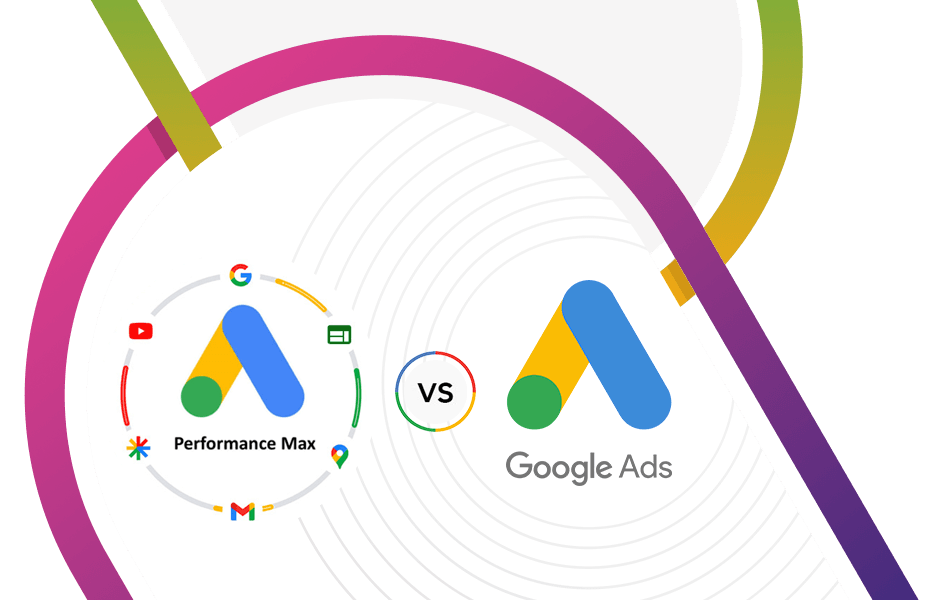
Free Digital Marketing Review
Elevate your online strategy with a personalised report and expert insights. Achieve your business goals faster!
Performance Max vs. Traditional Google Ads: Which Strategy Wins for SMEs in 2025?
Your Google Ads dashboard is flashing another notification: “Upgrade to Performance Max for better results.” But should you trust Google’s latest AI-powered campaign type, or stick with the Search and Shopping campaigns that have been delivering steady results? If you’re managing a limited marketing budget, this decision matters.
What’s Changed in 2025?
Performance Max has matured considerably. Google recently added age based demographic exclusions, device targeting and search term reports, features advertisers have been requesting since launch. The platform also introduced enhanced reporting with asset-level performance data and a beta channel breakdown showing exactly where your ads appear.
These updates tackle Performance Max’s biggest weakness: transparency. But better reporting doesn’t automatically mean better results.
Traditional Campaigns: Why They Still Matter
Search, Shopping, and Display campaigns have powered Google Ads for over two decades. Their strengths remain compelling:
Keyword control: Control how your ads appear by selecting the match types that best align with your targeting goals and customer intent.
Clear performance insights: See exactly which keywords convert, their costs, and where your budget goes. No algorithms obscuring the data.
Predictable growth: When something works, you understand why and can replicate it across other products or services.
This clarity matters when every pound counts.
The Performance Max Pitch
Performance Max operates differently. Instead of managing separate campaign types, you give Google your conversion goals and creative assets. Its AI then distributes ads across Search, Shopping, Display, YouTube, Gmail, and Discover – all from one campaign.
The appeal is clear:
Automated optimisation: Google’s AI tests countless combinations of headlines, images, and placements to find what converts best. Less manual work, potentially better results.
Broader reach: Your ads appear on platforms traditional Shopping campaigns can’t access, potentially finding customers you’d otherwise miss.
Claimed performance boost: Google reports advertisers typically see 14% more conversions at similar costs when adding Performance Max to Search campaigns.
Sounds promising. But here’s what the case studies don’t highlight.
The Hidden Cost of Automation
Performance Max has been quietly losing market share – dropping nearly 6% by early 2025 as advertisers rediscover that traditional campaigns offer more control.
Why the reversal?
You can’t pause poor performing YouTube placements. You can’t shift more budget specifically to Search when that’s where your customers convert.
For businesses watching every penny, this opacity creates anxiety.
Choosing Your Strategy: A Practical Framework
Performance Max works best when you:
- Generate at least 30-50 conversions monthly (the AI needs data to learn)
- Can invest budget for 4-6 weeks while algorithms optimise
- Want to test new channels beyond Search
- Lack time to manage multiple campaign types manually
Traditional campaigns suit you better if you:
- Launch new products with limited conversion history
- Need strict cost control and spending transparency
- Operate in regulated industries requiring placement oversight
- Rely on specific high performing keywords you can’t risk diluting
The Smart Play: Using Both Strategically
The most successful businesses in 2025 aren’t choosing sides, they’re using both.
Run traditional Search campaigns for your branded terms, high intent keywords, and proven performers. Maintain control where it matters most.
Deploy Performance Max for discovery and scaling. Let it find customers in research phases across Display, YouTube, and Gmail.
Here’s the crucial detail: Search campaigns take priority. When someone’s query exactly matches your Search campaign keyword, that ad shows instead of Performance Max. You protect your best terms while still benefiting from AI exploration.
Testing Performance Max Without the Risk
Ready to experiment? Here’s how to do it sensibly:
1. Ring fence a test budget: Allocate 20-30% of your Google Ads spend to Performance Max whilst maintaining existing campaigns. This limits downside whilst gathering real data.
2. Feed the algorithm properly: Upload at least 15 images, 5 headlines, 5 descriptions, and a video if possible. More assets give the AI better optimisation options.
3. Define your audience clearly: Use search themes and audience signals to tell Google about ideal customers, such as their demographics, interests, and behaviours based on past converters.
4. Exercise patience: Algorithms need 4-6 weeks and ideally 50+ conversions to optimise effectively. Judging performance after week one tells you nothing useful.
5. Watch for cannibalisation: Track whether Performance Max generates new customers or simply steals conversions from Search campaigns at higher costs.
The Bottom Line
There’s no universal winner. What delivers results for an e-commerce retailer won’t necessarily work for a B2B service business.
Successful advertisers in 2025 aren’t following trends blindly. They’re testing methodically, measuring rigorously, and making decisions based on their own data.
Start with what you control. If traditional campaigns deliver profitable results, don’t abandon them. If performance has plateaued, Performance Max might unlock new growth. Better yet, run both and let your results guide strategy.
Ready to optimise your Google Ads performance? Our team helps businesses navigate exactly these decisions. Whether you need a comprehensive PPC audit or guidance on whether Performance Max suits your business, we’re here to help. Book a free consultation today.

Need help with your website and marketing?
Book a FREE growth strategy session with our experts
Our award-winning team will review your website and marketing goals to provide you with crucial insight and advice.

4.9 STAR
Google reviews
With 10+ years of experience, Link Digital has helped hundreds of businesses to succeed online. We can help yours too!

